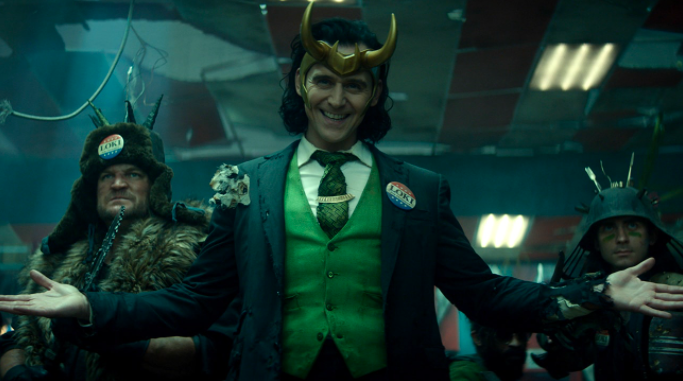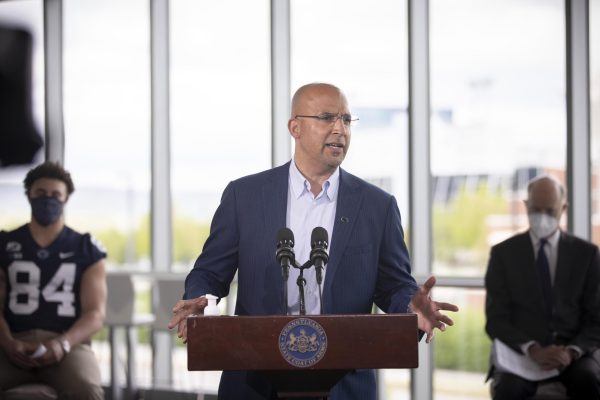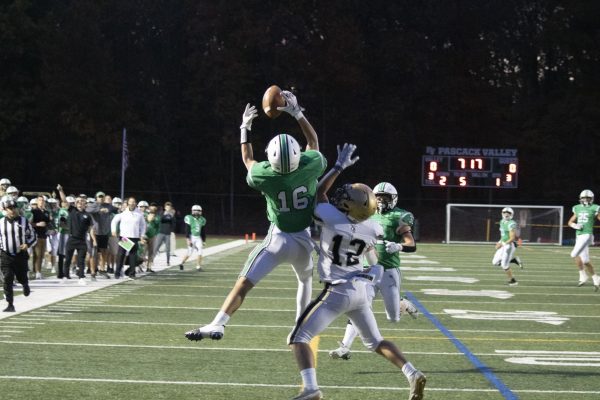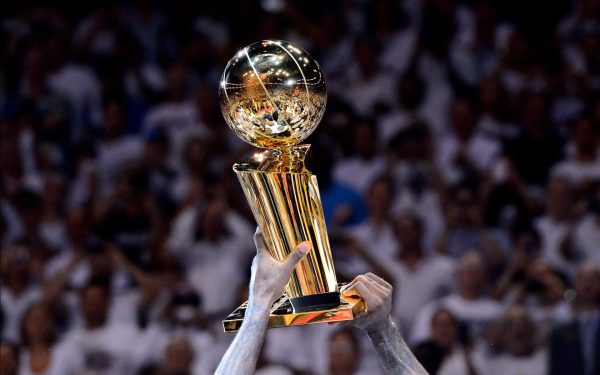‘Loki’: A confusing and messy show
Fair use from www.disneyplus.com
Season one of Disney’s Loki was released on June 9, 2021. The show follows Loki, a self proclaimed villain, who has been captured by a the time keepers, a group that has been said to keep the peace across time, for disturbing what is called the sacred timeline.
To explain the plot of “Loki,” one of Disney+’s newest Marvel shows, we need to review an event that occurred in Avengers: Endgame.
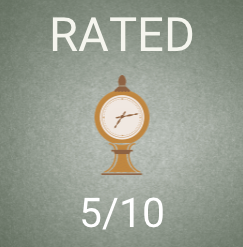 During the film, a handful of the Avengers (Ant Man, Captain America, the Hulk, and Iron Man) time travel back to 2012 New York City in search of three Infinity stones (the Space, Mind, and Time Stones) that happen to all be present there, during one of their previous clashes, the Battle for New York. The villain the 2012 Avengers are fighting happens to be the man, the myth, the legend, Loki, the God of Mischief himself. Who, conveniently, then was in possession of the Space stone; well, more accurately, he had the Tesseract, but inside of this luminous cube hid the Space Stone.
During the film, a handful of the Avengers (Ant Man, Captain America, the Hulk, and Iron Man) time travel back to 2012 New York City in search of three Infinity stones (the Space, Mind, and Time Stones) that happen to all be present there, during one of their previous clashes, the Battle for New York. The villain the 2012 Avengers are fighting happens to be the man, the myth, the legend, Loki, the God of Mischief himself. Who, conveniently, then was in possession of the Space stone; well, more accurately, he had the Tesseract, but inside of this luminous cube hid the Space Stone.
Anyway, after the fight concludes and 2012 Loki and the Tesseract are detained, the present-day Tony Stark (Iron Man) snags the briefcase containing the Tesseract from the 2012 Tony Stark, but it then is thrown from his grasp after getting hit by a door the 2012 Hulk comes bursting through.
Where does the now-open briefcase happen to land? Naturally, at the feet of 2012 Loki himself— who vanishes into a cloud of dust as soon as he gets his hands on it.
Here’s where the miniseries, “Loki” takes the baton and continues his story.
2012 Loki teleports to a desert in Mongolia, but is soon captured by the TVA (the Time Variance Authority), a transcendent organization that does not exist in time— the members only ensure that it (time) stays how it’s supposed to be, based on what occurs in what they call the ‘Sacred Timeline’. Obviously, because Loki wasn’t supposed to steal the Tesseract in 2012, after he lost in New York City, he ends up being tried for his “crimes against the Sacred Timeline,” which is a phrase I felt they used so much that I can now quote it verbatim.
Naturally, our 2012 Loki gets out of being killed (which is what the TVA usually does to so-called Variants, people who make the wrong decisions or do the wrong thing, which is not supposed to occur on the wonderful, Sacred Timeline), and mischief ensues.
Right off the bat, when Marvel introduced a new time-travel system, I checked out. Let’s make one thing clear: I really don’t like time travel in fiction. It’s the most overdone trope, and it’s not even that interesting; I know for a fact I’ve watched plenty of movies with time travel in them, but I can only remember Back to the Future (1985) because they’re all so forgettable. Every now and then, people write new spins on time travel, like the book I read with my book club, Passengers (2016) by Alexsandra Bracken, where the characters can only travel to different years on the same day in history (e.g., if it’s January 1st, 2021, you can time travel January 1st of any year— 1965, 2004, 2848, etc).
Point is, it’s a simple twist! It makes sense! This new system Marvel is installing into the next phase of its universe, however, does not. Why?
Let’s hop back to Infinity War, when scientist-and-Hulk Bruce Banner explains how Rhodey’s suggestion of strangling baby Thanos is based on a misconception of time travel: “Changing the past doesn’t change the future.”
Oh, but it clearly does! Why else is Loki being punished for not doing what the Sacred Timeline requires of him? Because, his actions do, indeed, alter the past’s events, which creates a branch off of the Sacred Timeline, and blah blah blah.
Or maybe Bruce’s argument stems from how the TVA fixes everything in the past before it can affect the future, and that’s how nothing is changed? But clearly, he does not know of the TVA’s existence.
The fact that I have to read into this new time travel system just proves how confusing and messy it is.
Obviously, because the show is centered so much around traveling through time, this was my main grudge. My next one is much shorter:
Loki’s love interest ends up being a Variant of himself, meaning a version of Loki from a branched timeline (named Sylvie), in a manner that seemed pretty rushed to me. I don’t know how to feel about that one. Considering the director, Kate Herron, confirmed Loki to be bisexual in a tweet, wouldn’t you want to create, I don’t know, a powerful, well-written romance for your first LGBTQIA+ main character, rather than just expecting viewers to be on board with Loki falling in love… with another Loki— very quickly, at that? Lazy writing, if you ask me.
“Loki” raises more questions than it answers about what happens after 2012 Loki escapes imprisonment, and honestly, I’m disappointed that I didn’t enjoy it as much as I thought I would when it was first announced. Loki was one of my first favorite characters ever, and for that, he will always have a special place in my heart, but the nostalgia I have tied to him was the best part of this viewing experience.
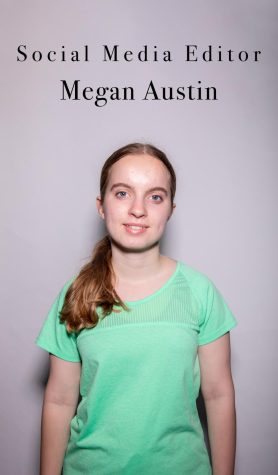
Megan Austin is the Social Media Editor for the Valley Echo, Pascack Valley High school’s student publication and has been for three years. She frequently...


